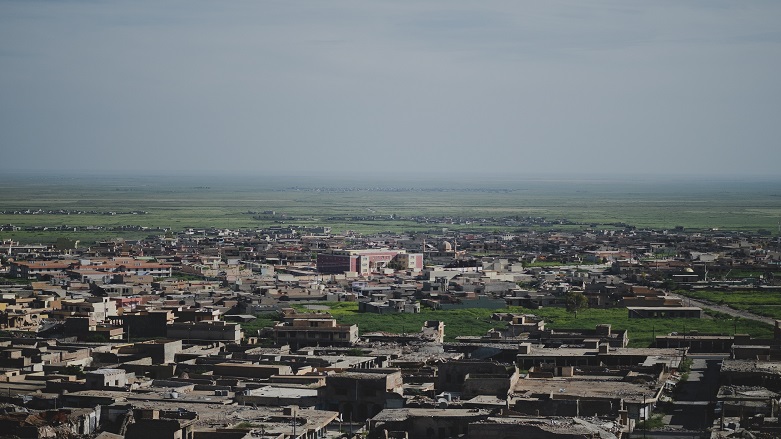On Yezidi holy day, Kurdistan PM says KRG 'insists' on Sinjar Agreement implementation

ERBIL (Kurdistan 24) – While honoring a high holiday for the Yezidi (Ezidi) religious minority on Thursday, Kurdistan Region Prime Minister Masrour Barzani used the occasion to advocate for a plan signed over a year ago aimed at bringing stability and security to Iraq's disputed Yezidi-majority district of Sinjar (Shingal).
In a statement, the leader expressed "his warmest congratulations and blessings to the Yezidi brothers and sisters on the occasion of the Festival of Fasting," and that he hoped the holiday would prove to be "filled with joys and delights."
The occasion is one of the Yezidi faith's holiest days and marks the third and final of three fasting days performed over a period of three weeks each winter.
Barzani vowed that the Kurdistan Regional Government (KRG) "will continue its path in order to serve all its peoples and to consolidate the culture of religious and national coexistence in the region."
Turning to a topic central to the decimated Yezidi population remaining within Iraq's borders, he said that his government "insists" on carrying out the process of "normalizing the situation in Sinjar and its suburbs through the implementation of the Sinjar Agreement and the withdrawal of outlaw groups so that displaced Yezidi brothers and sisters can return to their homes with their heads held high."
One of the plan's major provisions of the Sinjar Agreement, reached between the federal government of Baghdad and the autonomous KRG in October 2020, calls for the removal of all of several armed groups and militias that operate in the embattled district.
Read More: KRG and Baghdad reach administrative, security agreement on Sinjar
The 2014 emergence of ISIS led to the displacement of hundreds of thousands of Yezidis from Sinjar. Most of them fled to the autonomous Kurdistan Region, while others resettled in neighboring countries in the region or Western states.
Others were not as lucky and remained stranded in the war zone, where they experienced atrocities and mass executions at the hands of ISIS for years. Militants subjected women and girls to sexual slavery, kidnapped children, forced religious conversions, executed scores of men, and abused, sold, and trafficked women across areas they controlled in Iraq and Syria.
Before the attack, roughly 550,000 Yezidis lived in the Kurdistan Region and Iraq. As the terrorist group took over large swaths of territory in Nineveh province, where Sinjar is located.
The agreement's primary purpose involves understandings on security, civil administration, reconstruction, and service rehabilitation as necessary steps toward the return home of the thousands of displaced families.
Read More: KRG and Baghdad reach administrative, security agreement on Sinjar
Over a year after its signing, the agreement remains unimplemented, most seriously regarding its security provisions since multiple armed militias continue to operate there, making further meaningful progress almost impossible.
Last week at a solemn ceremony held in Sinjar to bury the recovered remains of Yezidi civilians murdered by ISIS, a KRG representative stressed “the need to overcome political and administrative obstacles that prevent justice for the victims' families, and accelerate the formation of the administration in Sinjar, enhancing security and stability and providing material aid and basic services for their return from displacement camps to their indigenous homeland.”
